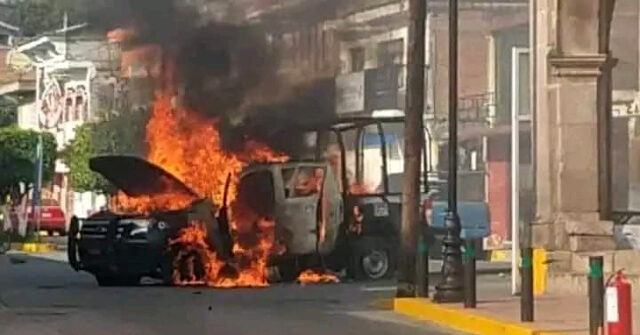In Guanajuato, Mexico, authorities are grappling with recent violent incidents linked to drug cartels, highlighting the perilous situation for law enforcement in the region. Notably, two significant attacks occurred where cartel gunmen employed car bombs to target police. These assaults are particularly alarming due to the ongoing turf wars between rival cartels in the state, aiming to intimidate police into allegiance. The first incident unfolded in Jerecuaro, where a police vehicle ignited in a public square, thankfully resulting in no reported injuries. This was closely followed by another blast outside a police station in Acambaro, injuring three officers, one critically.
As the investigation unfolds, government officials have reiterated their commitment to pursuing those responsible for these heinous acts, though skepticism surrounds the effectiveness of this promise. Guanajuato has been a focal point of violence, particularly against police, with alarming statistics revealing that 42 police officers have been murdered in the state this year alone, overshadowing the second highest state, Mexico State, where 22 officers have lost their lives. This staggering toll underscores the need for urgent action and a comprehensive strategy to address these threats.
Cartel Santa Rosa de Lima (CSRDL) is suspected to be behind the recent attacks, reflecting its longstanding history of violence and use of explosives against rivals and officials alike. The ongoing conflict primarily revolves around control of the illegal fuel theft and methamphetamine production markets, pitting CSRDL against the powerful Cartel Jalisco New Generation (CJNG). This fierce competition has resulted in widespread violence, including indiscriminate killings of civilians and police in efforts to assert dominance and punish any defiance, such as local establishments refusing to comply with cartel extortion.
The troubling trend of cartel violence in Guanajuato mirrors a broader crisis in Mexico, where law enforcement agencies find themselves continually undermined by organized crime. The heightened targeting of police, particularly in Guanajuato, has created an environment of fear and vulnerability, driving the need for effective strategies to safeguard public safety and restore trust in law enforcement. The alarming rate of police fatalities in the state signals an urgent necessity to bolster support for law enforcement and implement measures to combat cartel influence.
Local and national authorities face the daunting challenge of disrupting cartel operations while grappling with the societal implications of this violence. As cartels continue to terrorize communities, the strain on local resources and morale among law enforcement grows. Efforts must focus not only on immediate responses to violence but also on long-term solutions that involve community engagement and reforms aimed at eradicating the root causes of cartel proliferation and violence.
Ultimately, the tragic incidents in Guanajuato are more than just isolated attacks; they symbolize a persistent and devastating struggle against organized crime in Mexico. As authorities investigate and respond, it is crucial for the government to prioritize the safety and security of its police forces and the communities they serve. Collaborative efforts among law enforcement, government officials, and local communities are vital in confronting and dismantling the systemic issues perpetuating cartel violence, aiming to restore peace and stability in Guanajuato and beyond.

